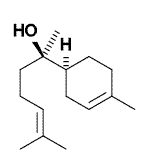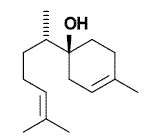20 TOP MOISTURIZERS FOR YOUR SKIN
Our skin is one of nature's most amazing feats of biological engineering. Consider, for a moment, that a single square inch of human skin harbors 19 feet of blood vessels, 19 million cells, 65 hairs, 625 sweat glands, and at least 90 oil glands. Equipped with all of these components, the skin works around the clock to shield us from invading bacteria, regulate body temperature, remove toxins, and provide a glove-fitting waterproof covering for our fragile bodies. What a remarkable instrument!
With all that our skin does for us, it demands relatively little in return, but does, of course, need some support to look and feel its best. Proper cleansing, toning, and nourishment from a balanced diet all help to keep our skin smooth, supple, and appear youthful.
Skin: enemies and friends
Unfortunately, skin has many enemies that may be beyond our conscious or direct control, such as exposure to wind and sun, environmental pollutants, stress, and simply enduring the toll of advancing years. All of these factors can contribute to the breakdown of the complex vascular and collagen network of the skin and accelerate the aging process. In fact, without intervention, our birthday suit may look considerably less like a well-fitted glove with the addition of each new candle on the cake.
But, that's the bad news. The good news is that one of the most important things we can do for our skin is to protect and replenish it with proper moisturizing. And, just as you strive to avoid chemical additives and preservatives in your food, your skin will thank you for doing the same when it comes to what you "feed" it.
Confused about which ingredients your moisturizing creams and lotions should contain? On this page is our at-a-glance look at the top 20 natural ingredients that make your moisturizing products work best for you.
Ingredients to be aware of -- and be wary of
Just as important as knowing what to look for in your lotions and creams is being aware of what to avoid. Some commercial products may boast that they contain vitamins or botanical-based ingredients, but they are sometimes blended with higher concentrations of some unsavory not-so-natural agents. Petroleum-derived products (such as mineral oil) are made from non-renewable sources and offer little benefit in terms of skin care.
The addition of artificial colors is not only unnecessary, but can also be dangerous; many of them have been banned after being found to be carcinogenic. Hexachlorophene was also once a common ingredient in lotions, but was banned after reports of causing serious health consequences in infants.
Other suspicious chemicals still abound in commercial creams and lotions, such as propylene glycol and sodium laurel sulfate, which are certainly best avoided since they are better known as anti-freeze and engine degreaser, respectively.
Know your skin type
Not everyone has the same skin-cleansing needs, so why should your moisturizer be a one-kind-fits-all-skin-types? An oily type of lotion may replenish moisture to dry or maturing skin, but can wreak havoc on oily or blemished skin. Similarly, a product designed to reduce oil production may benefit an oily complexion but wouldn't fare well on dry, or even combination, skin.
If you're not sure what skin type you have then the best thing to do is to gently cleanse your face and wait for 30 minutes. After that time, examine the areas of the "T-Zone" -- the forehead, nose, upper cheeks, and chin. Then follow the guidelines below to determine your basic skin type.
Normal Skin: If the skin has an overall appearance and feel of having a balance of moisture and suppleness, it can be considered "normal." Normal skin types have medium-sized pores and can tolerate most kinds of skincare products.
Dry Skin: If any of these areas show signs of dryness or flaking, then you're prone to having dry skin. Dry skin generally has a dull appearance with small pores and may show signs of trouble during the change of seasons. Due to its lack of hydration, dry skin may feel "tight" and have a tendency to heighten the appearance of fine lines and wrinkles. Dry skin responds particularly well to products that contain chamomile, sea kelp, glycerin, wheat germ and jojoba oils, and shed and cocoa butters.
Oily Skin: If one or more of these areas has a shiny appearance, or leaves a trace of oily residue on a tissue that has been blotted on the skin, then you probably have oily skin. The appearance of oily skin has been compared to that of an orange peel, being somewhat thicker in texture and sporting large pores that can trap dead skin cells and lead to blemishes. Products that contain papaya, horsetail, carrot, or black currant oil can help to correct excess sebum (skin oil) production.
Combination Skin: This is the most common skin type and is characterized by varying degrees of oily and dry areas in the T-Zone, but the cheeks and neck tend to be a little on the dry side. Aloe vera, chamomile, and green tea-containing formulas will help to balance out the oily and dry patches.
Sensitive Skin: If you have skin that reacts easily to lotions, then pure botanical-based moisturizers are especially good for you. Often, the culprits in commercial products are synthetic colors and fragrances. But, even all-natural products can produce a rash or cause your skin to break out.
Opt for light, water-based lotions and creams rather than the thick and heavy ones. Products containing hyaluronic acid will help to retain needed moisture and reduce irritation.
It's important to remember that skin is always changing and may exhibit different attributes at different times depending on any number of factors, such as diet, stress level, age, or environmental conditions (such as humidity).
Maturing skin: Regardless of whether it's oily or dry, maturing skin always needs antioxidants to prevent free-radical damage. Topical vitamins A, C, and E, as well as extracts of green tea, are excellent ingredients to provide protection and reduce the signs of aging.
Wanted: a few good men
Okay, guys -- maybe exfoliating and toning your skin aren't high on your list of priorities, but real men do need moisturizing. Actually, shaving is a form of exfoliation in itself. But, as every man knows, shaving creams and after-shave lotions can irritate skin and produce the familiar and uncomfortable "razor burn." This is usually because of the presence in the product of ethyl alcohol, among other things. Look for natural products that contain witch hazel, instead.
Top 20 moisturizing ingredients
1 Aloe Vera: Speeds healing and seals in moisture.
2 Biotin: B-vitamin which helps the skin to utilize protein.
3 Black Currant Extract: Firms skin and reduces fine lines.
4 Carrot Oil: Improves blemishes, speeds healing, and is an excellent source of beta-carotene and vitamins C and E.
5 Chamomile: Contains levomenol, a natural moisturizer that nourishes and reduces fine lines.
6 Citrus Seed Extract and Vitamins A, C, and E: Natural preservatives that stimulate cell growth and offer antioxidant properties that can reduce the signs of aging and improve the skin's texture.
7 Cocoa Oil and Cocoa Butter: A source of stearic acid; a natural fatty acid that smoothes and softens.
8 Comfrey: Can help repair damaged tissue and reduce scarring.
9 Farnesol: Obtained from certain flowers (such as roses), this substance reduces oil production and balances skin tone.
10 Glycerin: Binds moisture and adds suppleness.
11 Green Tea: Not just for drinking, green tea offers one of the best sources of antioxidants and guards against ultraviolet (UV) damage from sun exposure.
12 Horsetail: Rich in silica and other minerals that soften, speed healing, and improve elasticity.
13 Hyaluronic Acid: A natural agent occurring in human skin that acts as a humectant, absorbing up to 1,000 times its weight in water.
14 Jojoba Oil: Softens and retains moisture without clogging pores.
15 Panthenol: A pro-vitamin B derivative that retains moisture and reduces fine lines.
16 Papaya: Papain enzymes act to exfoliate and restore the pH acid mantle of the skin.
17 Rose Hip Oil: Replenishes lipids and reduces fine lines.
18 Sesame Oil: Sesame oil is a natural sunscreen that softens skin.
19 Wheat germ Oil: An abundant source of the antioxidant vitamin E that can help to correct sun damage.
20 Yeast Cell Extract: A very efficient wrinkle and fine-line reducer, especially for the area around the eyes.
For Women:
* Normal Skin: Alba Botanica Sea Kelp Facial Toner; CamoCare Light Facial Therapy
* Oily Skin: CamoCare Gold Light Foaming Cleanser; Beauty Without Cruelty Off-Free Moisturizer
* Dry. Skin: Nature's Gate Petal-Fresh Herbal Dry Moisturizer; CamoCare Gold Intense Facial Therapy
* Mature Skin: Kiss My Face Flower Essence Toner; Aubrey Organics Blue-Green Algae Cleansing Cream; CamoCare Gold Intense Facial Therapy
For Men:
* Tom's of Maine Natural Shaving Cream
* Bun's Bees Bay Rum Shaving Soap
* Earth Science for Men -- Dry Skin Intensive Treatment & Beard Softener
* Earth Science After-Shave Skin Soother
* Kiss My Face Natural Moisture Shave
* Alba Botanica Original Formula Cream Shave
* Keep in mind, this is not a comprehensive list. Visit your local health food store to check out their selection of skin-care products.
REFERENCES
Quatrochi, Kathlyn. The Skin Care Book. Loveland, Colo.: Interweave Press, 1997.
Tourles, Stephanie. The Herbal Body Book. Pownal, Vt.: Storey Communications, 1994.
Karyn Siegel-Maier is a freelance writer who specializes in herbs, alternative medicine, and new age issues. Karyn is a frequent contributor to national and regional magazines, newsletters, newspapers, and other publications. She is currently working on a series of herbal books.
COPYRIGHT 1999 PRIMEDIA Intertec, a PRIMEDIA Company. All Rights Reserved.
COPYRIGHT 2000 Gale Group




